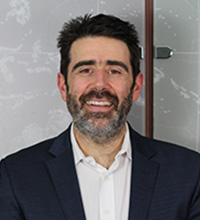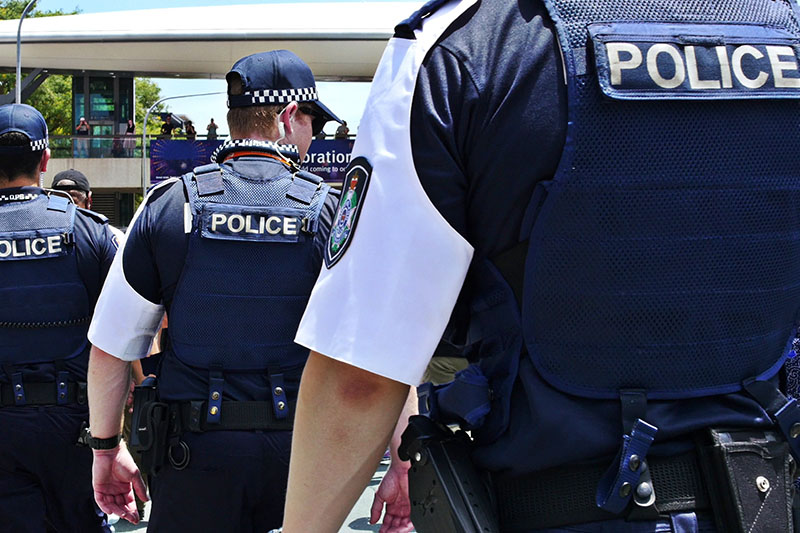Australia must not revert to a past era in which governments only manage one security threat at a time, and mistake the temporary decline of terrorist groups such as al Qaeda and ISIS as ‘mission accomplished’ rather than threats that are permanently evolving.
Australia’s international engagement on terrorism has diminished markedly since counter-terrorism (CT) successes in neighbouring Indonesia and the Philippines, Australia’s withdrawal from Afghanistan in 2021, the winding down of the global war on terrorism and the reduction in our domestic terror threat level in 2022.
At one level this makes sense, with priority given to the re-emergence of state-on-state conflict and strategic competition. But Australia must not revert to a past era in which governments only manage one security threat at a time, and mistake the temporary decline of terrorist groups such as al Qaeda and ISIS as ‘mission accomplished’ rather than threats that are permanently evolving.
Let’s not fall for the trap of thinking that terrorism is dead. The end of the Cold War was not the end of history; trade with Russia and China didn’t stop them from interfering with or invading other nations; and success against ISIS and al Qaeda hasn’t heralded an era without terrorist groups seeking to do us harm.
Ironically, it was the emergence of terrorism after September 11 that kept democracies like Australia’s from tackling the threats posed by Moscow and Beijing, including foreign interference and cyber-attacks.
Now the need to counter authoritarian regimes as the top security priority is impacting policymaking associated with other threats, including terrorism.
The mistakes we have made since the end of the Cold War must finally be learned: the use of force and violence in breach of international rules and norms – whether by authoritarian states or by terrorist groups – is encouraged by inaction and is only constrained by strengthening national resilience and international collaboration.
It is concerning, therefore, that recent ‘machinery of government’ changes to Australia’s CT arrangements failed to address the critical mechanisms for co-ordinating our international efforts.
The troubling trend of global instability
The recent raising of the terror threat level by the Australian Security Intelligence Organisation (ASIO) increased Australians’ awareness of the threat. But terrorism is not just domestic.
Australians abroad have always been more likely to be victims of terrorism. And instability in other countries enables terrorist groups to use ungoverned spaces to plot attacks, including against Australia.
The global nature of terrorism, along with Australia’s international commitments, mean we must reassess and reinvigorate our international CT efforts. A CT strategy, promised by former Home Affairs Minister Clare O’Neil, would be an ideal mechanism.
While we have passed high water marks such as the Islamic State caliphate, terrorism is an enduring problem that has metastasised and fragmented. At present, we are not at a historical terrorism peak, but the conditions that drove those periods remain.
But two years on, we are yet to see it, which is perplexing given the troubling trend of global instability since it was promised, including Hamas’s attack on Israel and the ensuing Middle East conflict, a rise in terrorist activity across Africa, ongoing division in Europe, and the recent thwarting of a terror plot targeting a Taylor Swift concert in Vienna, as well as increasing online radicalisation.
Last month also marked the third anniversary of the Taliban’s takeover of Afghanistan. Fears of that country again deteriorating into a sanctuary for terrorist organisations are firming, with reports of al Qaeda’s growth and Islamic State-Khorasan Province’s increasing ability and intent to project terror beyond Afghanistan’s borders.
One of the key lessons from ISIS’s rise in Syria and Iraq is that terrorists thrive in ungoverned spaces. We cannot allow these groups to lay claim once again in a Taliban-led Afghanistan. We have seen that script before.
Nor can we afford to become victims of our own CT success. While we have passed high water marks such as the Islamic State caliphate, terrorism is an enduring problem that has metastasised and fragmented. At present, we are not at a historical terrorism peak, but the conditions that drove those periods remain.
The experience of the past two decades in international CT efforts underscores the fact that relationships and capacity-building cannot be stop-start affairs and require nurturing and processes that are built up over time.
Following the 2002 Bali Bombing, Australia became adept in its international CT efforts both regionally and globally. Through intelligence-sharing, police co-operation and dialogues, and diplomacy, Australia advanced its capacity and capability, and those of its partners, to respond to terrorism proactively.
But after years of taking a leadership role in international CT, Australia has dropped back, putting us at a disadvantage – and potentially leading to reduced influence in global CT efforts, reputational damage, decreased access to critical intelligence and resources, and a weakened ability to respond to international terrorism threats.
Diminishing reach
A healthy intelligence and law enforcement community is vital, but it should not be expected to run security policy or co-ordination. Yet a brief examination of Australia’s current international CT arrangements reveals a dangerous uncertainty about who is in charge, as well as resource constraints.
The CT Ambassador’s office, within the Department of Foreign Affairs and Trade, has seen a reduction in both size and budget, affecting its influence offshore at a time when international terrorism is on the rise and, critically, when Australia’s CT diplomacy is needed.
Our dedicated global CT presence – encompassing law enforcement, intelligence and diplomatic efforts – has significantly diminished, with its reach retreating in key countries from Pakistan to Indonesia.
The CT Coordinator, sitting within the Department of Home Affairs, is at once isolated from the key operational agencies of ASIO and AFP, separated from the international agenda undertaken by the CT Ambassador, and is also the Co-ordinator for Counter-Foreign Interference. How does the one officer co-ordinate Australia’s two principal security threats? And just what are the connections between the two policy areas?
Global engagement on security policy with counterparts is crucial to Australia’s safety. Without a National Security Adviser we are not at that international table – and if there are simultaneous meetings of terrorism and foreign interference, which one is prioritised by Australia?
Furthermore, our dedicated global CT presence – encompassing law enforcement, intelligence and diplomatic efforts – has significantly diminished, with its reach retreating in key countries from Pakistan to Indonesia.
Previous successes in regional and global CT capacity development, exemplified by mechanisms such as the Jakarta Centre for Law Enforcement Co-operation, were once highly esteemed by our international partners. However, these achievements are now at risk due to staffing and funding constraints.
As the threat of terrorism and politically motivated violence continues to evolve, so too must Australia’s CT efforts – both domestic and international. A cohesive and well-coordinated approach to CT is essential to Australia’s and Australians’ security and safety.
Let’s not wait for the next wave of terrorism before we restore the resources and influence of the CT Ambassador and Coordinator. The era of tackling one problem at a time is gone – we must and can counter all security threats to our country, our citizens and our national interests.
This article first appeared on the ASPI Strategist, and is republished under a Creative Commons Licence; you can read the original here.
About the Authors
 Dr John Coyne is Head of the Northern Australia Strategic Policy Centre and Head of Strategic Policing and Law Enforcement at the Australian Strategic Policy Institute (ASPI). John was the inaugural head of ASPI’s Border Security Program; he came to ASPI from the Australian Federal Police, where he worked on transnational serious organised crime, national security, and counter-terrorism. John has worked in intelligence and national security for over 25 years. He has been an intelligence professional at tactical, operational, and strategic levels across military, regulatory, national security and law enforcement organisations.
Dr John Coyne is Head of the Northern Australia Strategic Policy Centre and Head of Strategic Policing and Law Enforcement at the Australian Strategic Policy Institute (ASPI). John was the inaugural head of ASPI’s Border Security Program; he came to ASPI from the Australian Federal Police, where he worked on transnational serious organised crime, national security, and counter-terrorism. John has worked in intelligence and national security for over 25 years. He has been an intelligence professional at tactical, operational, and strategic levels across military, regulatory, national security and law enforcement organisations.
 Justin Bassi is the Executive Director of ASPI. From June 2019 to March 2022 he was Chief of Staff to the Minister for Foreign Affairs and Minister for Women; prior to this, he was the Cyber Intelligence Mission Manager at the Office of National Intelligence. Previously, Justin has been National Security Adviser to Prime Minister Malcolm Turnbull, National Security Adviser to Attorney-General George Brandis, and spent more than 10 years in the Australian Public Service, including in the intelligence community for the Office of National Assessments and at the Department of the Prime Minister and Cabinet.
Justin Bassi is the Executive Director of ASPI. From June 2019 to March 2022 he was Chief of Staff to the Minister for Foreign Affairs and Minister for Women; prior to this, he was the Cyber Intelligence Mission Manager at the Office of National Intelligence. Previously, Justin has been National Security Adviser to Prime Minister Malcolm Turnbull, National Security Adviser to Attorney-General George Brandis, and spent more than 10 years in the Australian Public Service, including in the intelligence community for the Office of National Assessments and at the Department of the Prime Minister and Cabinet.
Picture © M. W. Hunt / Shutterstock


